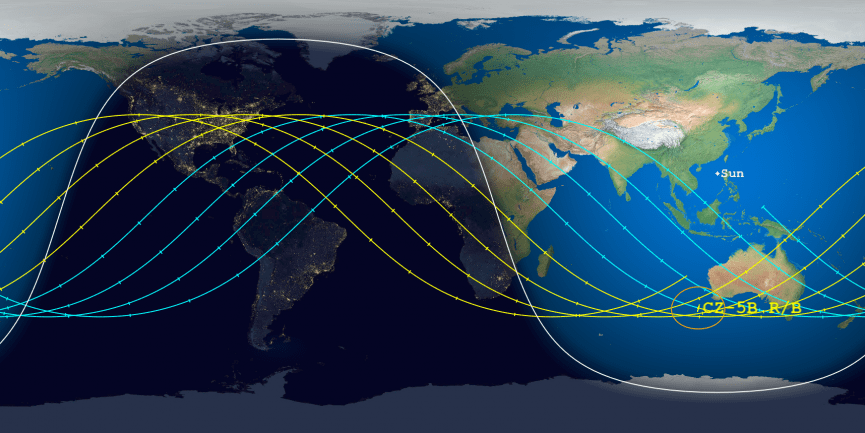A rocket is falling back to Earth and nobody is sure where it will land

FILE – In this April 29, 2021, file photo released by China’s Xinhua News Agency, a Long March 5B rocket carrying a module for a Chinese space station lifts off from the Wenchang Spacecraft Launch Site in Wenchang in southern China’s Hainan Province. The central rocket segment that launched the 22.5-ton core of China’s newest space station into orbit is due to plunge back to Earth as early as Saturday in an unknown location. (Ju Zhenhua/Xinhua via AP, File)
(NewsNation Now) — A rocket from a Chinese space launch is falling uncontrollably back to Earth, and it could be days before we know where it will land.
U.S. Space Command is tracking the Long March 5B rocket and expects it to land sometime Saturday. But, they cannot guarantee where it will re-enter the atmosphere, much less where it will land, until “within hours of reentry.”
Experts said the rocket should have had a controlled descent back into the ocean but instead entered orbit around the Earth. It’s now circling the planet, getting closer and closer to reentry with each trip around the globe.
Because Earth is more than 70% water, there’s still a good chance that the rocket plunks harmlessly into an ocean.
Aerospace, a federally funded nonprofit that researches and develops space technology, predicts it could reenter the atmosphere at 12:07 a.m. ET Sunday. But they add there’s a 24-hour window on either side of that estimate when it could reenter instead.

The rocket was launched April 28 carrying materials for what will become the Chinese space station, Tianhe.
This is not the first time a rocket from China has taken an unexpected path back home. Last May, another Chinese rocket fell uncontrolled into the Atlantic Ocean off West Africa.
Basic details about the rocket stage and its trajectory are unknown because the Chinese government has yet to comment publicly on the reentry. Phone calls to the China National Space Administration weren’t answered on Wednesday, a holiday.
However, the newspaper Global Times, published by the Chinese Communist Party, said the stage’s “thin-skinned” aluminum-alloy exterior will easily burn up in the atmosphere, posing an extremely remote risk to people.
The 18-ton rocket that fell last May was the heaviest debris to fall uncontrolled since the former Soviet space station Salyut 7 in 1991.
China’s first space station, Tiangong-1, crashed into the Pacific Ocean in 2016 after Beijing confirmed it had lost control. In 2019, the space agency controlled the demolition of its second station, Tiangong-2, in the atmosphere.
In March, debris from a Falcon 9 rocket launched by U.S. aeronautics company SpaceX fell to Earth in Washington and on the Oregon coast.










